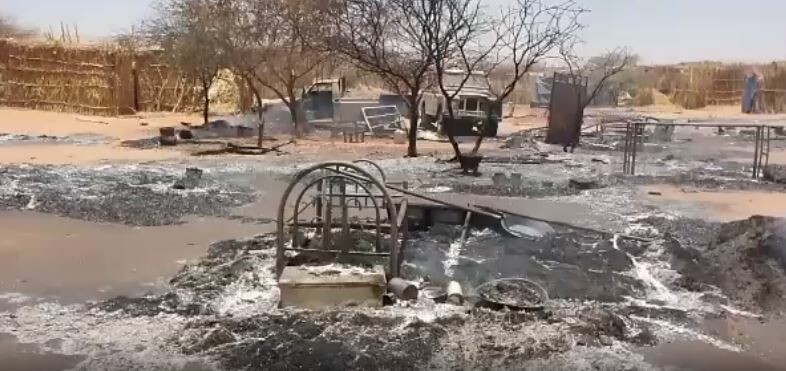Several members of the Committee for Supporting Victims of the Events in Western Al-Fashir in Sudan’s North Darfur State have said that the needs of the displaced people far exceed the capacities of both the committee and the Sudanese state.
They are urging international organizations to expeditiously intervene and support the displaced people in Al-Fashir’s rural areas which conservative estimates put at 20,000, as displacement continues.
According to sources, ongoing fighting between the Sudan Armed Forces (SAF) and the Rapid Support Forces (RSF) and their allied local militias has forced the residents of villages in Western Al-Fasher to flee from their homes. Subsequently, their homes were burned and properties were either looted or destroyed.
Abdulmoneim Aldoma Abdullah, the head of the Committee for Supporting Victims in Western Al-Fashir, described the conditions of the displaced in the Shagra camp as extremely complex.
“After visiting the displaced camp which is located 3 kilometers west of Al-Fashir city, we found the displaced suffering from a severe shortage of drinking water, shelter, food, and clothing. Some of them even walk barefoot due to the lack of shoes,” he explained. “We are in the process of addressing the water problem, which is not within their jurisdiction but the responsibility of the relevant authorities in the state government. However, we are prioritizing it to assist the displaced people.”
Another member of the committee, Ibrahim Abdelrahman Ahmed, described the conditions of the IDPs as catastrophic, highlighting that their needs exceed the capacities of both the committee and the Sudanese government.
“We call on international and regional organizations to intervene and provide urgent assistance to the displaced, as there is a severe shortage of basic services such as health care, electricity, food, and water,” he stressed.
Meanwhile, Adam Yakoub Adam, the deputy chairman of the committee, praised the members of the committee and the residents of Al-Fashir town for welcoming the war-displaced and supporting the wounded from the affected areas, especially at Al-Fashir South Hospital.
However, he described the events outside Al-Fashir city as regrettable, with a significantly high displacement rate.
“The state is witnessing large waves of displacement, with the displaced distributed among Shagra camps A, B, and C, as well as the villages of Um-Hajajil and Qarnaia and all neighboring areas,” he explained.




